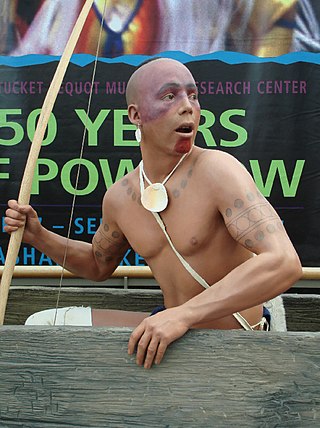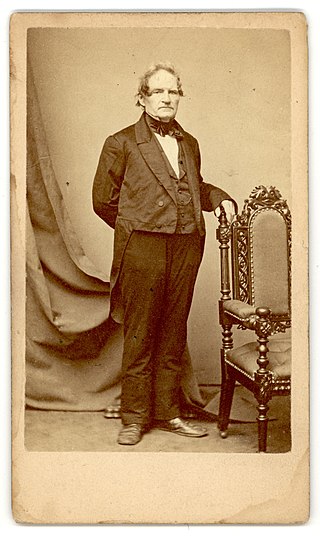Biography
Gura was born in Ware, Massachusetts. A graduate of Phillips Academy (1968), he received his AB, magna cum laude , in History and Literature in 1972 from Harvard College, and his PhD, in the History of American Civilization in 1977, from Harvard University, where he lived in Lowell House. [2]
He is the author or editor of 14 books, including The Wisdom of Words: Language, Theology, and Literature in the New England Renaissance (1981), A Glimpse of Sion's Glory: Puritan Radicalism in New England, 1620–1660 (1984), the prize-winning America's Instrument: The Banjo in the 19th Century (1999), Buried from the World: Inside the Massachusetts State Prison, 1829–1831 (2001), C. F. Martin and His Guitars, 1796–1873 (2003), Jonathan Edwards: America’s Evangelical (2005), American Transcendentalism: A History (2007), which was a National Book Critics Circle Award finalist in non-fiction, The American Antiquarian Society, 1812–2012: A Bicentennial History (2012), Truth's Ragged Edge: The Rise of the American Novel (2013), Jonathan Edwards: Writings from the Great Awakening (2013), The Life of William Apess (Pequot) (2015), and Man’s Better Angels: Romantic Reformers and the Coming of the Civil War (2017). Some of his essays, which number over fifty, have been collected in The Crossroads of American History and Literature (1996). He has served as an editor of The Norton Anthology of American Literature. [3]
Gura is an elected member of the American Antiquarian Society, [4] the Massachusetts Historical Society, the Colonial Society of Massachusetts, and the Society of American Historians. In 2008, the Division on American Literature to 1800 of the Modern Language Association honored him with its Distinguished Scholar award. [5] In 2019 the governor of North Carolina named him to the Order of the Long Leaf Pine, a state-wide honor. [6]
He plays the clawhammer banjo in a traditional Appalachian style, known as "old-time." [7]

The Pequot are a Native American people of Connecticut. The modern Pequot are members of the federally recognized Mashantucket Pequot Tribe, four other state-recognized groups in Connecticut including the Eastern Pequot Tribal Nation, or the Brothertown Indians of Wisconsin. They historically spoke Pequot, a dialect of the Mohegan-Pequot language, which became extinct by the early 20th century. Some tribal members are undertaking revival efforts.
Transcendentalism is a philosophical, spiritual, and literary movement that developed in the late 1820s and 1830s in the New England region of the United States. A core belief is in the inherent goodness of people and nature, and while society and its institutions have corrupted the purity of the individual, people are at their best when truly "self-reliant" and independent. Transcendentalists saw divine experience inherent in the everyday, rather than believing in a distant heaven. Transcendentalists saw physical and spiritual phenomena as part of dynamic processes rather than discrete entities.

Elizabeth Palmer Peabody was an American educator who opened the first English-language kindergarten in the United States. Long before most educators, Peabody embraced the premise that children's play has intrinsic developmental and educational value.

John Eliot was a Puritan missionary to the American Indians who some called "the apostle to the Indians" and the founder of Roxbury Latin School in the Massachusetts Bay Colony in 1645. In 1660 he completed the enormous task of translating the Eliot Indian Bible into the Massachusett Indian language, producing more than two thousand completed copies.

The Pequot War was an armed conflict that took place in 1636 and ended in 1638 in New England, between the Pequot tribe and an alliance of the colonists from the Massachusetts Bay, Plymouth, and Saybrook colonies and their allies from the Narragansett and Mohegan tribes. The war concluded with the decisive defeat of the Pequot. At the end, about 700 Pequots had been killed or taken into captivity. Hundreds of prisoners were sold into slavery to colonists in Bermuda or the West Indies; other survivors were dispersed as captives to the victorious tribes.

John Oldham was an early Puritan settler in Massachusetts. He was a captain, merchant, and Indian trader. His death at the hands of the Indians was one of the causes of the Pequot War of 1636–37.
The Transcendental Club was a group of New England authors, philosophers, socialists, politicians and intellectuals of the early-to-mid-19th century which gave rise to Transcendentalism.

Samuel Gorton (1593–1677) was an early settler and civic leader of the Colony of Rhode Island and Providence Plantations and President of the towns of Providence and Warwick. He had strong religious beliefs which differed from Puritan theology and was very outspoken, and he became the leader of a small sect known as Gortonians, Gortonists, or Gortonites. As a result, he was frequently in trouble with the civil and church authorities in the New England colonies.

Sylvester Judd was a Unitarian minister and an American novelist.

The American Antiquarian Society (AAS), located in Worcester, Massachusetts, is both a learned society and a national research library of pre-twentieth-century American history and culture. Founded in 1812, it is the oldest historical society in the United States with a national focus. Its main building, known as Antiquarian Hall, is a U.S. National Historic Landmark in recognition of this legacy. The mission of the AAS is to collect, preserve and make available for study all printed records of what is now known as the United States of America. This includes materials from the first European settlement through the year 1876.
Perry Gilbert Eddy Miller was an American intellectual historian and a co-founder of the field of American Studies. Miller specialized in the history of early America, and took an active role in a revisionist view of the colonial Puritan theocracy that was cultivated at Harvard University beginning in the 1920s. Heavy drinking led to his premature death at the age of 58. "Perry Miller was a great historian of Puritanism but the dark conflicts of the Puritan mind eroded his own mental stability."

Convers Francis was an American Unitarian minister from Watertown, Massachusetts.
John Sassamon, also known as Wussausmon, was a Massachusett man who lived in New England during the colonial era. He converted to Christianity and became a praying Indian, helping to serve as an interpreter to New England colonists. In January 1675, Sassamon was ambushed and assassinated. A mixed jury of colonists and Indian elders convicted and executed three Wampanoag men for his murder. These events helped spark the conflict known as King Philip's War, in which the New England Colonies defeated the Wampanoag and ended armed resistance by the Native Americans of southeastern New England.

William Apess, was a Methodist minister, writer, and activist of mixed-race descent. Apess spent most of his career in New England.

The Center for the Study of the American South (CSAS) is an academic organization dedicated to the study of "southern history, literature, and culture as well as ongoing social, political, and economic issues" at the University of North Carolina at Chapel Hill.

The Puritan culture of the New England colonies of the seventeenth century was influenced by Calvinist theology, which believed in a "just, almighty God," and a lifestyle of pious, consecrated actions. The Puritans participated in their own forms of recreational activity, including visual arts, literature, and music.
Norman Fiering is an American historian, and Director and Librarian, Emeritus, of the John Carter Brown Library.
Annie Russell Marble was an American essayist, whose work dealt with early American historical figures, authors of the Transcendental movement, some of whom she knew personally, and commentary on literature in general.
Albert Deane Grover was an American banjoist, composer, teacher, and prolific inventor of musical parts and accessories for stringed instruments. He was a founding member of the Boston Ideal Banjo, Mandolin and Guitar Club. Grover held over 50 patents for musical instrument parts, and founded the musical accessories company A. D. Grover & Son. His father, Stephen Grover (1820–1885), was a Boston piano maker.

Congregationalism in the United States consists of Protestant churches in the Reformed tradition that have a congregational form of church government and trace their origins mainly to Puritan settlers of colonial New England. Congregational churches in other parts of the world are often related to these in the United States due to American missionary activities.












